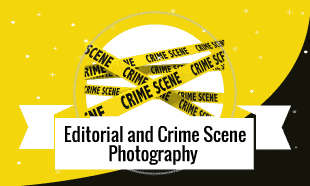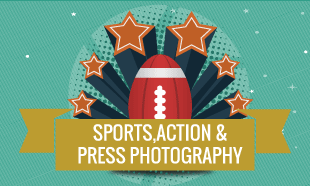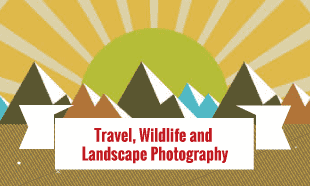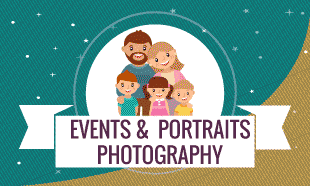Adv. Certification in Editorial & Crime Scene Photography
Get a Call
INTRODUCTION
Editorial and Crime Scene Photography is an aspect of photography that deals with the taking of pictures that would be used in editorial pieces such as magazines, ezines and blogs and in most cases as a pictorial evidence for the police and court as it relates to crime or investigation.
OBJECTIVE
The Editorial and crime scene photography would help the students take valuable pictures of evidences that would be correct and useful enough to be used as evidence in court or an investigative tool by the police.
COURSE OUTLINE
- The basics of Photography
- Cameras and Camera settings
- Picture Framing and composition
- Basic Exposure concepts
- Lights- Ultraviolet, infrared and Fluorescence
- Photogrammetry
- Special photography situations in editorial and crime scene photography
- Legal aspect of editorial and crime scene photography
COURSE BREAKDOWN
MODULE 1
The basics of Photography
- Understanding the basics of digital photography
- File types (RAW and JPEG)
- White balance
- The exposure triangle – Aperture, shutter speed and ISO
MODULE 2
Cameras and Camera settings
- Digital Cameras
- Lenses and Focal Lengths
- Tripods and Accessories
- Camera Modes- Auto mode, aperture priority and shutter priority
MODULE 3
Picture Framing and composition
- Rule of Thirds
- Cardinal rules of crime scene photography
- Focus and Depth of Field
- Perspective and Angle
- Focal length and Lens compression
MODULE 4
Basic Exposure concepts
- The proper exposure triangle
- Shutter speed as motion control
- Reciprocal exposures
- Reflective light meter
- Normal and non normal scenes
- Tools for determining proper exposure
- Common filters and eye cup cover
- Manual flash mode
- The inverse square law
- Automatic and dedicated flash exposure modes
- Bounce and fill in flash
MODULE 5
Lights- Ultraviolet, infrared and Fluorescence
- The electromagnetic spectrum
- Ultraviolet light
- Infrared light on the electromagnetic spectrum
- Visible light fluorescence
- Coaxial Lighting
MODULE 6
Photogrammetry
- Introduction to photogrammetry
- Perspective grid photogrammetry
- Perspective disc photogrammetry
- Reverse projection photogrammetry
- Rhino Photogrammetry
MODULE 7
Special photography situations in editorial and crime scene photography
- Photo documentation forms
- Overall photographs
- Mid range photographs
- Close up photographs
- Photographic documentation of bodies and wounds
- Accident photography
- Surveillance photography
- Aerial Photography
- Underwater photography
- Evidence on vertical walls
MODULE 8
Legal aspect of editorial and crime scene photography
- Criteria of photographs and digital images as evidence
- Legal implications of digital imaging
BY THE END OF THE Editorial and Crime Scene Photography COURSE, STUDENTS WOULD BE ABLE TO
- Take valuable pictures for editorials and police investigation and court evidence
SOFTWARE/ MATERIALS USED
- Adobe Photoshop
- A DSLR Camera
CAREER OPTIONS AFTER COURSE
Students who complete this course have the following career options
- Editorial Photographer
- Crime Scene photographer
WHY TGC INDIA?
TGC India is a leading Graphics and Animation Institute in Delhi with branches across the country. The Editorial and Crime Scene Photography course is a purely practical course with tea m projects, seminars, workshops and show reel development. Individual mentorship during and after the course is also available. TGC India has highly efficient, intelligent and vast staff . TGC India has been organizing Multimedia Training for both degree and short term programs for upwards of 10 years and have a large number of alumni presently working in the Multimedia Industry all across Asia and Africa.
Training Partner
Similar Courses
Upcoming Batches:
Course Reviews
No Reviews found for this course.











0 Responses on Adv. Certification in Editorial & Crime Scene Photography"